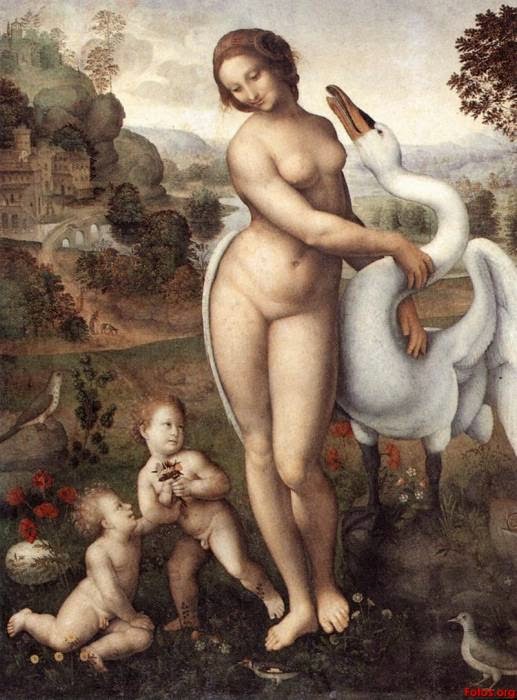Leonardo was born in the small town of Vinci near to Florence in the Tuscan countryside of Italy. He has been considered to be one of the great geniuses of all time, but what can we learn about his genius from the life he lead?
Firstly, he was an illegitimate son and was never recognized by his father. He was deprived of the education he could have expected. One of the clues is in his hand writing. Leonardo wrote backwards! Why? Some people have suggested that it was to hide his ideas from getting into the wrong hands, but the answer is probably far simpler. Leonardo, like many creative people, was left handed. Until recent times left handed people were forced to write how teachers thought was best. In fact western culture has always had a disposition towards this perspective. For example in many European languages the word “right” is a synonym of “correct”, whilst in some languages, such as Italian the word for “left” (“sinestra” or “sinister”) literally means “strange” or “unusual”. We can now see the origins of these prejudiced attitudes towards the left! Precisely because he had never been “corrected” his mind remained outside of the box, free from the constraints of formal education.
Another clue is in the fact that Leonardo never learnt to read Latin. Most of the scientific knowledge of his times was in the language of the church and strictly controlled by it. Scientific enquiry had not been about experimentation since the times of the ancient Greeks. This was mainly due to the presence of slavery in society. Investigation which required physical effort or “getting your hands dirty” came to be perceived as something vulgar. Only slaves used their hands! From the times of the Greek philosopher Plato science and philosophy became a “pure” pursuit of the mind. This was extremely damaging to the progress of science and lead to the end of classical culture and the beginning of the dark ages.
Leonardo came exactly at the end of these times and the fact that he couldn’t read Latin meant that he was the first person to start again with physical experimentation. He made lots of observations that may seem to be obvious, but most scholars had their heads in books that had been written hundreds of years in the past (usually full of mistakes!) and did not make the effort to observe the world themselves!
The method of scientific inquiry was reborn and would lead to the great discoveries of scientists such as Galileo Galilei and Isaac Newton. It also gave us the idea that there is no such thing as an “authority” in science. A theory must be proved with evidence and no matter how much we like it or are attached to an idea (probably because it is traditional to believe it!) we must question it and if necessary change our ideas along with the evidence.
Leonardo was fortunate to live in an era that was rediscovering the classical past. Florence was a city where new ideas could flourish. A place which attracted young talent with new ideas which would not have been tolerated in other places because of the church’s control over society. However the Italy of the renaissance was a dangerous place to live. Here are some of the most influential people of the era.
Lorenzo de Medici
Lorenzo came from a family of bankers who took control of the city of Florence. However these bankers decided to use their wealth and influence to patronise the arts, science and literature. Lorenzo was different to most leaders as he was open to new ideas and embraced change. He was a humanist and wanted to encourage the best in people. He was one of the first to recognise Leonardo’s talent, translated ancient texts into modern languages and provided the money for most of what we now consider the renaissance or rebirth after the middle ages. His most important act was probably his discovery of a young boy who could make sculptures like the ancient Greeks. Lorenzo instantly took the boy into his own family and helped him towards greatness. That boy was called Michelangelo and he grew up to create the most famous statue in the world.
Pope Sixtus IV
Pope Sixtus was notorious for his policies of nepotism. He used his power to give land and riches to members of his family. He was Lorenzo’s main enemy as he was against the forward thinking progressive direction in which he was taking the city of Florence. There was a delicate balance of power in the Italy of his times. The Pope controlled no army, but had an alliance with the military city state of Naples to the south.
Galeazzo Maria Sforza
Lorenzo didn’t control an army either, but he had an alliance with the northern Italian city state of Milan, which was controlled by the Sforza family (who Leonardo would go to work for later in his life) Galeazzo Maria was the head of the Sforza family and although he was a degenerate who ruled Milan with fear and intimidation, Lorenzo, a humanist, needed his protection against the threat of attack by the Pope and Naples. It was a balance of power too fragile to last…
Watch the trailer for Da Vinci's Demons here. The series picks up during Leonardo's youth and plays loose and wild with his character. More adventure story than history, but still interesting to get the flavour of the times. This is Leonardo as we'd like him to be. You can instantly tell that it's by the same guy who wrote the Christopher Nolan Batman trilogy! Yes, there's a totally unapologetic license taken with all the could have beens around Leonardo's enigmatic sketches fully realised as renaissance era gadgets!
















